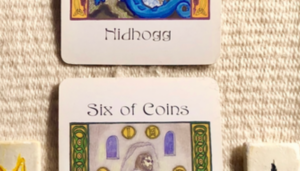These are things I’ve been doing that help me. Feel free to use, adapt to your own situation, or ignore if they’re not helpful. I’ll be posting these intermittently, as I manage to write them up. They’ll be tagged “Quarantine Care”, if you want to use the tag search to find them instead of scrolling.
1. Limit your news consumption. It’s easy to be consumed by the 24/7 news cycle, and spend every waking moment huffing the latest “breaking news”, especially for people who consider themselves “news junkies” and for whom information provides a sense of control in the chaos.
However, because of the state of perpetual reporting, there’s not that much new content in each hour/update, and you can find yourself imbibing the same stories over and over. That’s not helpful for your mental health, any more than eating cookies all day is good for your physical health.
Choose two or three reliable sources of information, and set a limit on how much time you spend with each. I read the San Francisco Chronicle (my local newspaper) each morning, and glance at the headlines in the Financial Times, reading a story only if it has something new to add to what I have already read. I also pick up news as I’m scanning my social media, which leads me to the next tip.
2. Limit your social media consumption. This is always a good idea, because of the sheer amount of misinformation, emotional manipulation, and outright dreck that comprises the social media torrent.
Choose channels that you enjoy using. In the BT (Before Times), I had decided to take a break from Facebook because I wasn’t enjoying it. That break continues, because, except for the cute bird photos, I haven’t missed it, and my mental health has improved by not exposing myself to the endless stream of stuff.
I’m currently on Tumblr (which I enjoy) and Twitter (a mix of work-related posting and following some people who provide entertaining and/or useful content).
I also add things to my Pinterest that interest me, although I don’t spend time browsing others’ boards. The potential for distraction is too great, and I need to be careful about my time.
I also set limits on how much time I spend on each channel. I find that 15 minutes is about as much of any one channel as I need in a day. I break it up into two or three visits, which helps me see more varied content, and also prevents me from slipping into the state of mind I think of as a “social media coma”—that place with no mental focus, when it’s too easy to just keep scrolling and scrolling, even though I know I need to log off and turn my attention elsewhere.
And yes, I set a timer to keep myself honest.
3. Isolate your news sites and social media in their own browser, and use them only on your laptop or desktop. This makes it easier to avoid pulling up a news site or social media channel “for just a quick check” in between doing other things.
Don’t use apps or shortcuts, and don’t save the passwords in the browser.
Log out of each site when you are done.
Set it up so that you have to make conscious effort to go to the site and access the information.
Sometimes, simply having to open a browser, pull up the site, and manually log in will give your brain enough time to realize, “no, I don’t want to be doing this right now”, and allow you to disconnect and go on to something you actually want or need to do.
These have helped me set some clear boundaries around my time and my mental energy, and I hope they are helpful to you as well.


